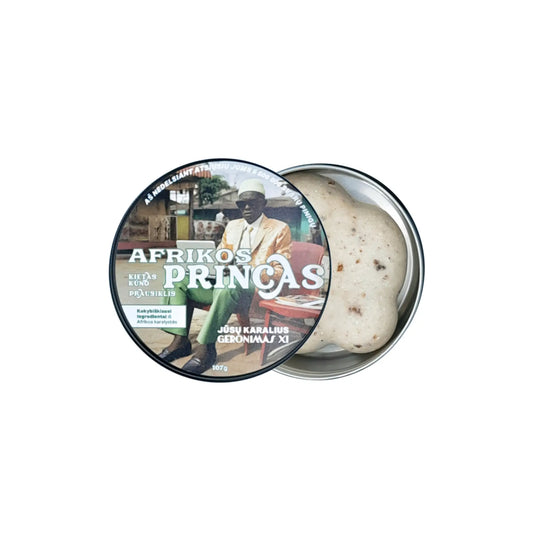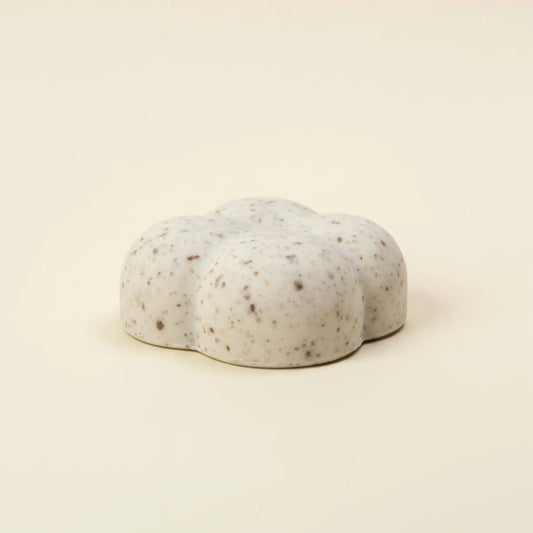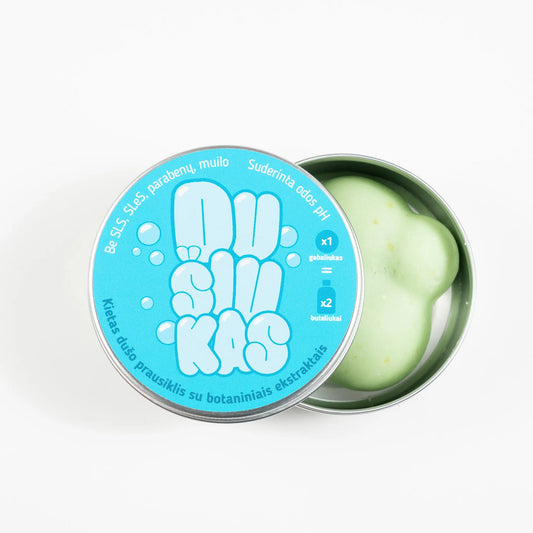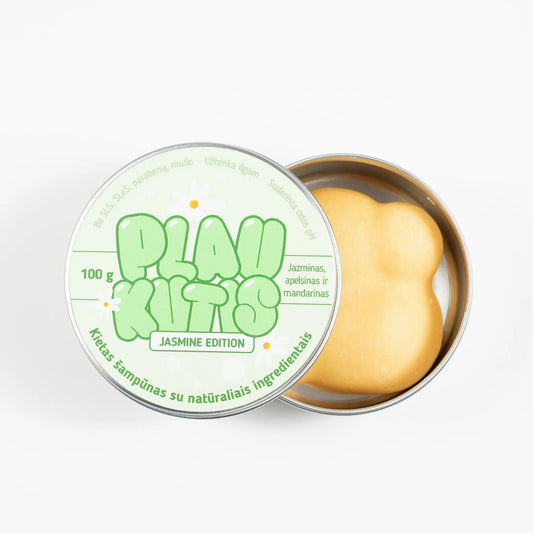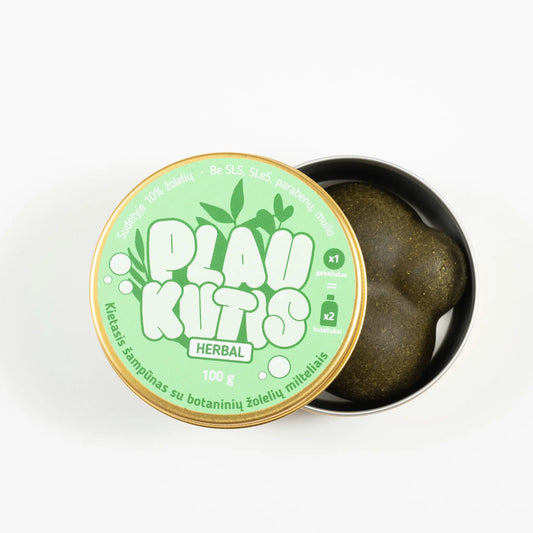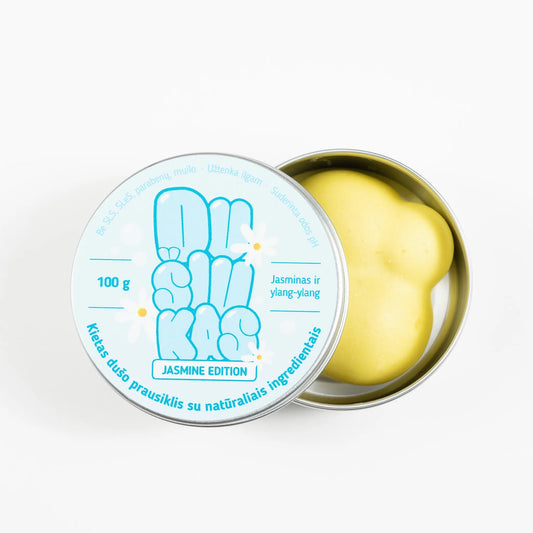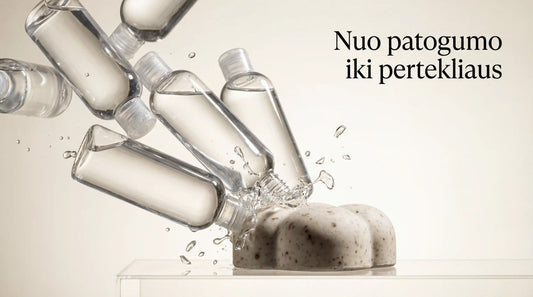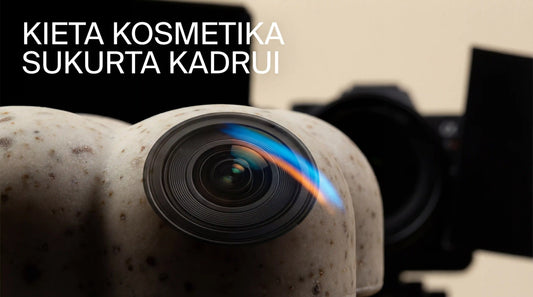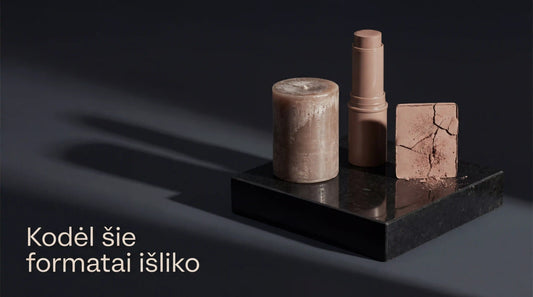Biotin supplements have taken the beauty world by storm. It seems like everyone is talking about how they can magically make your hair longer, thicker, and stronger. You may have seen them advertised on social media, recommended by influencers, or even at your local store. But are these supplements really as effective as they claim to be?
In this article, we’ll delve deeper into the subject. We’ll discuss the science behind biotin supplements, what they can really do for you, and whether they’re worth considering for the average person. Whether you’re experiencing hair loss or simply want to keep your hair as healthy as possible, it’s time to learn the truth about biotin supplements.

The Science of Biotin Supplements
If you’re wondering what makes biotin so special, here’s a quick explanation. Biotin, also known as vitamin B7, is a water-soluble vitamin that plays an important role in maintaining healthy hair, skin, and nails. It helps your body convert nutrients into energy and is essential for the production of keratin, the protein that makes up your hair. Because of this, people often associate biotin with hair growth and overall hair health.
But what does the science say about biotin supplements specifically for hair growth?
- Biotin Deficiency Studies : Biotin deficiency is rare, but it can cause hair thinning and loss. In such cases, biotin supplements can work wonders. A study published in the Journal of Dermatology (2016) found that people who were deficient in biotin experienced significant hair regrowth after taking biotin supplements. Interestingly, about 38% of people with unexplained hair loss were found to be deficient in biotin, suggesting that biotin may be the missing link for some.
- Hair growth in healthy individuals : The scientific evidence is less clear for healthy individuals. Most studies suggest that if your biotin levels are adequate, supplemental biotin may not have a noticeable effect on hair growth. The Journal of Clinical and Aesthetic Dermatology (2019) concluded that biotin supplements are most effective for those who are already biotin deficient, while healthy individuals may not see any additional benefit. In one meta-analysis, only 8% of people who were not biotin deficient saw improvement after taking biotin supplements.
- Case Studies : There are numerous case studies in which people report improved hair health after taking biotin supplements. However, most of this evidence is anecdotal. The placebo effect can play a role – if you believe something will work, it often does. For example, a 2017 survey found that 70% of participants who believed biotin would help reported subjective improvement, even though their biotin levels did not change.

Do biotin supplements really help hair growth?
You may be asking yourself, “Do I need to take biotin to have beautiful hair?” The truth is, it depends on your individual situation.
- When Biotin Helps : If you’re experiencing hair loss or thinning due to a biotin deficiency, supplementation can be very helpful. Biotin is essential for the production of keratin, so getting enough is important for strong, healthy hair. If your diet lacks biotin-rich foods like eggs, nuts, and seeds, you may find that your hair isn’t as strong or thick as you’d like. The American Journal of Clinical Nutrition (2020) reports that people whose diets were deficient in biotin saw a 42% increase in hair thickness after six months of supplementation.
- When biotin doesn’t work : For those who already get enough biotin in their diet, supplemental biotin likely won’t increase hair growth. A 2018 study in Dermatology Research and Practice found that people with normal biotin levels didn’t see a significant improvement in hair growth after taking supplements. It’s a bit like watering plants when they’ve already had enough water—the extra water won’t help and may even cause problems. In fact, too much biotin can interfere with the absorption of other important nutrients, like vitamin B5, which can actually harm your hair.
- The role of other nutrients : Hair health doesn’t just depend on biotin. Vitamins like vitamin D, iron, and zinc are also important for hair growth. If you’re deficient in any of these nutrients, you may not see results from biotin alone. It’s important to think about your overall diet and lifestyle when trying to improve your hair health. For example, a 2019 study in Nutrition Reviews found that iron deficiency was a leading cause of hair loss in 30% of women under the age of 40, suggesting that a balanced nutrient intake is crucial.

When are biotin supplements necessary?
So, when should you really consider taking biotin supplements?
- Biotin Deficiency : If you have been diagnosed with a biotin deficiency, supplementation is highly recommended. Signs of biotin deficiency include thinning hair, brittle nails, and skin rashes. A simple blood test can help determine if you are getting enough biotin. Interestingly, biotin deficiency affects about 1 in 60,000 people, making it rare but not impossible.
- Pregnancy or breastfeeding : Your biotin levels may decrease during pregnancy or breastfeeding. It’s always best to consult your healthcare professional, but in this case, a biotin supplement may be necessary to maintain hair health. Studies show that nearly 50% of pregnant women experience decreased biotin levels due to increased metabolic demands, which can affect hair and skin.
- Hair loss or poor hair quality : If you’re experiencing hair loss or think your hair isn’t growing as it should, talk to your healthcare professional. They can help determine if biotin supplements might help or if there are other factors. A 2018 study in the Journal of Family Medicine found that only 20% of hair loss cases were linked to biotin deficiency, with other factors like stress, genetics, and diet playing a larger role.

Possible side effects of biotin supplements
Before you rush out to buy biotin supplements, it's important to understand the potential side effects.
- Acne : High doses of biotin can cause acne breakouts, especially on the chin and jawline. This happens because biotin can interfere with the absorption of other vitamins, such as vitamin B5, which helps prevent skin inflammation. A 2019 study in Clinical, Cosmetic, and Investigational Dermatology found that 30% of participants taking high doses of biotin reported an increase in acne.
- Interference with lab tests : Biotin supplements may interfere with certain blood tests, including thyroid function tests. The FDA has warned that high levels of biotin in the blood can cause false test results, which can be dangerous. A 2018 report published in Endocrine Practice found that taking biotin supplements resulted in an incorrect diagnosis of thyroid disorders in 12% of patients undergoing routine tests.
- Allergic reactions : Although rare, some people may experience allergic reactions to biotin supplements. Symptoms may include skin rashes, itching, or swelling. If you experience any of these symptoms, stop taking the supplement and consult your doctor. The Journal of Allergy and Clinical Immunology (2020) estimated that about 0.01% of the population may experience such reactions.
To avoid side effects, it’s best to stick to the recommended dosage. Most supplements provide around 30-100 micrograms per day, which is usually enough for most people. Interestingly, side effects have been reported in over 25% of users at doses over 5,000 micrograms per day, so it’s important to be mindful of moderation.

Myth busting: interesting facts about biotin supplements
Let's examine some common myths about biotin supplements:
- Myth: Biotin supplements will make your hair longer overnight
- Truth : Hair growth takes time. Even if biotin helps, it may take several months before you notice any changes. Hair grows an average of about 1.25 cm per month, so even with biotin, patience is required.
- Myth: The more biotin, the better
- Fact : Taking more biotin than your body needs will not increase hair growth. In fact, it can cause unwanted side effects. A study in Mayo Clinic Proceedings (2020) found that excessive biotin intake can reduce the absorption of other important nutrients, such as magnesium and zinc.
- Myth: Everyone needs biotin supplements
- Fact : Most people get enough biotin from a balanced diet. Supplements are usually only needed when biotin is deficient. According to the NHANES (National Health and Nutrition Examination Survey), 98% of the population gets enough biotin from their daily diet.
- Myth: Biotin only helps hair
- Fact : Biotin also plays an important role in skin and nail health. If you’re deficient in biotin, you may notice brittle nails or skin problems. A 2017 study in the Journal of Cosmetic Science found that taking biotin supplements improved nail thickness by 25% in people with weak nails.
- Myth: Biotin is a miracle cure for hair loss
- Truth : Hair loss can have many causes, from genetics to stress. Biotin can help if a deficiency is the problem, but it’s not a miracle cure. In fact, only about 18% of hair loss cases are directly related to biotin levels, according to Hair Therapy & Transplantation (2019).

Practical tips for taking biotin supplements
- Consult a doctor : Before taking any supplements, consult a healthcare professional. They can help determine if you really need them.
- Focus on your diet first : Try to get your biotin from foods like eggs, nuts, seeds, and fish. Supplements should be a last resort. For example, chicken liver has up to 138 micrograms of biotin per serving, making it a great natural source.
- Be patient : Hair growth is a slow process. If you start taking biotin, give it at least three to six months to see a difference. In one clinical study, participants saw improvements after an average of four months.
- Watch for side effects : Pay attention to your body. If you notice acne or other side effects, consider lowering your dosage or discontinuing your supplements.
- Consider a multivitamin : Sometimes a multivitamin can be more beneficial than just a biotin supplement, especially if you are deficient in other nutrients. According to Harvard Health Publishing (2021), multivitamins that contain biotin along with other nutrients tend to have a balanced effect on overall health.

Frequently Asked Questions About Biotin Supplements
- How long does it take for biotin to start working?
- It may take three to six months before you notice any changes in hair growth or nail strength. Hair grows an average of 1.25 cm per month, so patience is key.
- Can too much biotin be harmful?
- Yes, too much biotin can cause side effects such as acne and interfere with lab tests. Stick to the recommended daily dose of 30-100 micrograms.
- Do biotin supplements work for everyone?
- No, biotin supplements are most effective for those who are deficient in biotin. If your levels are normal, supplemental biotin may not have any noticeable effect. According to Nutrients (2021), only about 20% of people with normal biotin levels see improvement.
- What foods are high in biotin?
- Foods like eggs, nuts, seeds, fish, and sweet potatoes are great sources of biotin. One large egg contains about 10 micrograms of biotin, making it an easy addition to your diet.
- Can biotin help with other health issues?
- In addition to hair, biotin also supports healthy skin and nails. It helps the body convert food into energy, which is important for overall well-being. A 2018 study published in Current Developments in Nutrition found that biotin supports glucose metabolism, helping people with mild blood sugar disorders.

Conclusions: The Truth About Biotin Supplements
Biotin supplements have gotten a lot of attention, but the truth is, they're not for everyone. If you're deficient in biotin, they can be a great help to your hair health. But if your biotin levels are adequate, you may not notice much of a difference.
Remember, there is no magic pill for perfect hair. A balanced diet, proper hair care, and addressing any underlying health issues are the real keys to healthy, beautiful hair. If you're thinking about trying biotin supplements, talk to your healthcare professional first to make sure it's the right choice for you.
Have you tried biotin supplements? Have you noticed a difference in the health of your hair? We'd love to hear your experiences in the comments!
